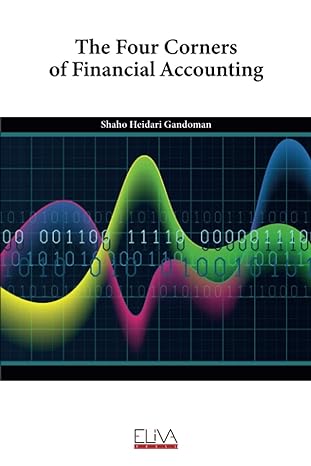Question
please help ASAP I only have 1 hour 1) When the court fixes a term, does it amend or modify the obligation concerned? Group of
please help ASAP I only have 1 hour
1) When the court fixes a term, does it amend or modify the obligation concerned?
Group of answer choices
a)NO, it does not amend the obligation because the court only enforces the implied intention of the parties.
b)YES, it amends the obligation because the law is deemed to be part and parcel of any contract.
c)NO, it does not amend the obligation because the judge can be one-sided and the intention of the parties cannot be subjected to judicial prerogative.
d)YES, it amends the obligation because the court exercises its discretion in fixing a term.
2) A borrowed money from B, and pledged a medal with diamonds as security. It was agreed that A was to pay the money loaned with interest at the end of one year.
Question: Before the expiration of the one-year period, is A allowed to pay his debt and recover the medal pledged?
Group of answer choices
Generally, NO because it is understood that the period of one year is established for the benefit of both the debtor and the creditor.
As a matter of exception, YES because the debt can be onerous.
As a matter of exception, NO because there was no demand yet.
Generally, YES because B gave his consent to pre-pay the obligation
3) May an obligation be joint on the side of creditors and solidary on the side of the debtors, or vice versa?
Group of answer choices
NO because the law prohibits confusing relationship between debtors and creditors.
YES because there is no prohibition under the law.
YES because solidarity is never presumed and the general rule is that the relationship would always be joint, absent any stipulation to the contrary.
NO because parties are not free to stipulate their relationship since everything must be in accordance with the law.
4) For services rendered by Jose to Maria, Maria issued Jose a check payable to CASH worth P50,000 dated March 1, 2021. Jose accepted the check. On February 14, 2021, Jose needed money to date his girlfriend Tina for Valentine's day. Early that morning of February 14, Jose went to Berto to have the check "rediscounted." Jose endorsed the check in favor of Berto and Berto gave Jose P49,000. On March 1, 2021, Berto was successfully able to encash the check. Jose went to Maria asking for payment of his services.
Jose argued that the check paid by Maria is not legal tender and the obligation is thus, not yet extinguished. Is Jose correct?
Group of answer choices
YES, Jose is correct. Check is not legal tender in the Philippines. Payment by check does not extinguish an obligation.
NO, Jose is not correct. Check is not legal tender unless encashed. Jose accepted the check as payment and the same has been successfully encashed.
NO, Jose is not correct. Maria made a valid tender of payment via check and it was properly consigned to Jose. According to the law, tender of payment coupled with consignment extinguishes an obligation.
YES, Jose is correct. It was Jose, not Berto, who encashed the check. As far as Jose is concerned, the check was never encashed and the check, not being legal tender, never had the effect of payment which could have extinguished the obligation.
5) In a contract of sale of a residential house and lot, a stipulation states that if within two years from the date of sale, the buyer has not yet built 50% of his proposed residence, the buyer would pay P100,000 to the seller.
The payment of P100,000 by the buyer to the seller is called ___________?
Group of answer choices
Penal clause
Term
Condition
Interest
Step by Step Solution
There are 3 Steps involved in it
Step: 1

Get Instant Access to Expert-Tailored Solutions
See step-by-step solutions with expert insights and AI powered tools for academic success
Step: 2

Step: 3

Ace Your Homework with AI
Get the answers you need in no time with our AI-driven, step-by-step assistance
Get Started


